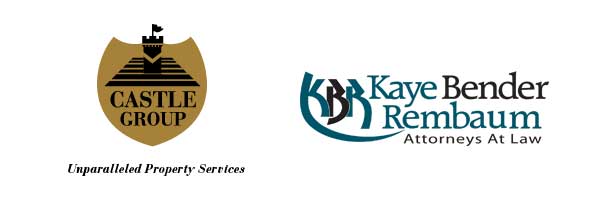THEY DID NOT DIE IN VAIN
When The Florida Legislature went home after the 2021 Legislative Session without passing a single change to Florida condominium safety laws, it was a slap in the face to the victims and their families. This firm was relentless and refused to give up.
We wrote the Governor’s Office demanding that this be corrected, we kept blasting Florida’s legislators on Television and of course on the Condo Craze and HOAs radio and YouTube show. We kept fighting the fight.
After all, we warned every member of The Florida Legislature in May of 2018, of the pending disaster that faces The State of Florida if mandatory reserves are not passed. It took the loss of 98 lives to get the laws changed, but this firm is so proud to say after massive public pressure, The Florida Legislature passed and The Governor signed the most dramatic changes to Florida Condominium Safety Laws ever passed in the history of the state.
This issue is devoted to teach all of you the massive changes to the laws that each and every condominium unit owner and especially, every single board must immediately learn and have respect for. No doubt that these laws will make it financially more difficult for many to purchase and many to even remain living in their condominium unit. Nonetheless, The Florida Legislature did the right thing and put lives and safety ahead of finances.
The face of Florida condominiums have changed forever. If you have questions or concerns, call us.
OUR BOARD CERTIFICATION COURSE IS BACK!!!
The law now provides that within 90 days of getting elected to a condominium or homeowner’s association Board
of Directors, you must get certified or you are removed from the Board. One way to get certified is by attending a
state approved course. Attorney Eric Glazer has designed a course that was approved by The DBPR, which allows
him to certify attendees as eligible to serve on a Florida condominium or HOA Board of Directors. See the list
below of classes you may register for. Eric is proud to have certified over 20,000 directors throughout the state.
Other Board Certification Classes –for Condos and HOAs
AUGUST 25TH – ON-LINE BY ZOOM — 6:00 P.M.
As to the Following, All Starting Times are 9:00 a.m. at the L&L Condo and HOA Expo:
October 4th – Palm Beach, The Palm Beach Convention Center
October 11th – Broward at The Signature Grand
October 12th –Brandenton, at The Bradenton Convention Center
October 17th – Orlando at The Orange County Convention Center
October 27th – Tampa at the Tampa Convention Center
Eric Glazer: Eric is a graduate of NYU and The University of Miami School of Law in 1992. Our firm is proud to announce that as of June 1st, 2018 Eric was part of the first ever group of attorneys in the state to
become Board Certified in Condominium and Planned Development Law. Out of over 100,000 attorneys in the state, approximately 195 are Board Certified in this area. Eric was also certified by The Florida Supreme Court as a Circuit Court Mediator in 2007. He is also a member of the New York, Washington D.C. and Tennessee Bar. Eric is also a Florida Supreme Court Certified Arbitrator.
Richard Sachs has been practicing since 1994. He has been certified by the Florida Supreme Court as a Circuit Court mediator since 2002. He is also a Florida Supreme Court Qualified Arbitrator. Richard received the distinguished “AV” rating from Martindale-Hubbell in 2000 and has maintained that rating throughout his career. He is well respected by
his peers as demonstrated by his being named to the list of Florida Super Lawyers and the list of the South Florida Legal Guide’s Top Lawyers, both since 2011.
Pennie Mays is Board Certified in Construction Law by The Florida
Bar. Pennie was admitted to The Florida Bar in 2005. She has spent her
16 year career representing associations against developers and
contractors and other commercial litigation.
Paul Kim is practicing since 2007. He devotes much of his time to
litigation in state and federal court and arbitration including but not
limited to service and emotional support animal issues, disability and
discrimination law, rule compliance and complex bankruptcy issues.
Our firm prides itself on our ability to represent associations
and their owners on all legal matters that come their way.
Whether it’s representation in the courtroom, in administrative hearings, attending your meetings, answering your calls, speaking with you on the radio or teaching you at our seminars, it is always an honor and a pleasure to serve
you.
Eric M. Glazer, Esquire
Tags: Condo and HOA







 Imagine: the association has just informed you it is set to begin a massive concrete restoration project. As part of the project, the contractor will need access to the rebar beneath the concrete slab connected to (or in legalese, “appurtenant to”) your unit’s balcony. To access the balcony slab, the contractor will have to remove the custom Italian tiles you just installed on your balcony. Who is responsible for the costs of the removal? Who is responsible to replace the tiles? The answers to these questions will largely depend on whether the governing documents of the association include an “incidental damage clause” and the specific circumstances of the situation, too.
Imagine: the association has just informed you it is set to begin a massive concrete restoration project. As part of the project, the contractor will need access to the rebar beneath the concrete slab connected to (or in legalese, “appurtenant to”) your unit’s balcony. To access the balcony slab, the contractor will have to remove the custom Italian tiles you just installed on your balcony. Who is responsible for the costs of the removal? Who is responsible to replace the tiles? The answers to these questions will largely depend on whether the governing documents of the association include an “incidental damage clause” and the specific circumstances of the situation, too.









 Shareholder
Shareholder








